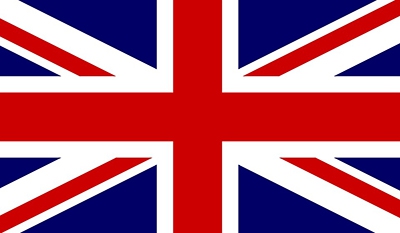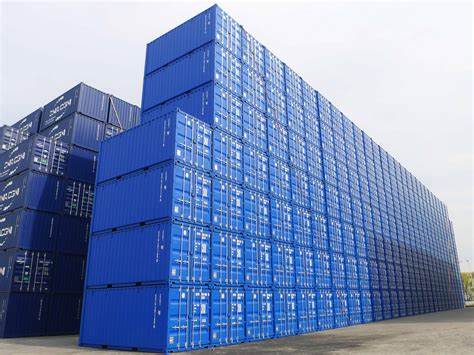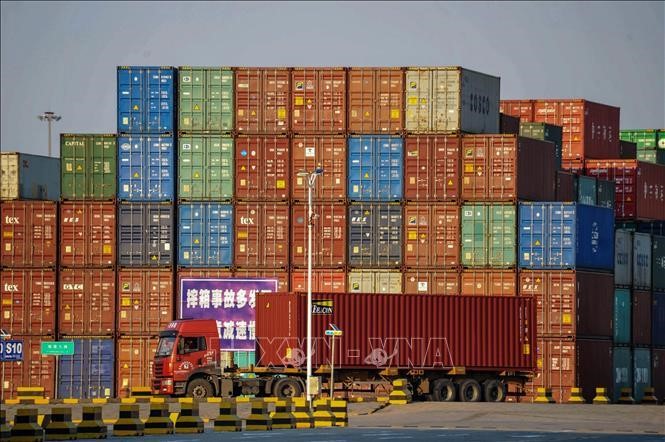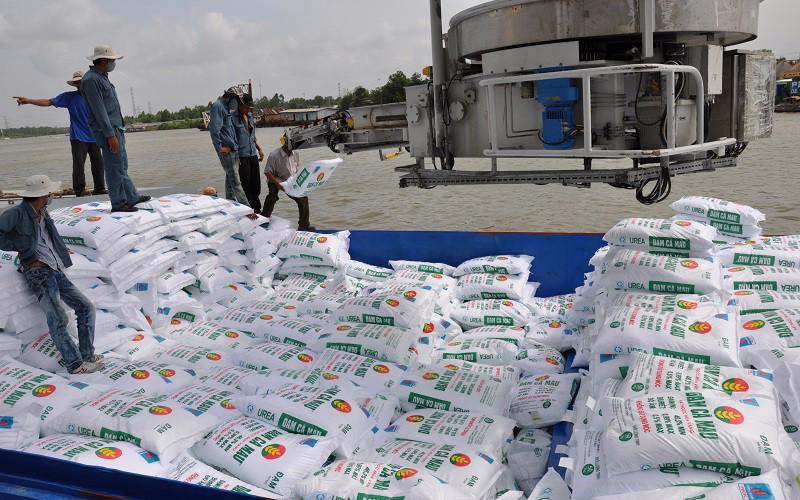HOUTHI ATTACKS IN THE RED SEA: A RISK TO INTERNATIONAL TRADE
The Gaza war between Israel and the Palestinian organization Hamas led to attacks by the Yemeni Houthi armed forces on cargo ships in the Red Sea, near the strategic Bab-el-Mandeb Strait, disrupting trade in the sea. The connection from the Indian Ocean to the Mediterranean was disturbed, raising many concerns for world trade, forcing the US to form an international alliance to protect this vital maritime route.
.png)
From October 7, 2023, after the Palestinian force Hamas launched a terrorist attack on Israeli territory, the Israeli army immediately responded with a fierce and bloody military campaign in Gaza, the Houthi armed forces Yemen, under the support of Iran, which supports Palestine and has long participated in the "axis of resistance" against the US, has conducted many attacks with drones and even ballistic missiles targeting ships and boats traffic in the Red Sea that the Houthis believe has a "connection with Israel", including civilian ships carrying goods, regardless of the nationality of the ship owner or the operating shipping company...
However, in reality, the Houthis do not only target ships headed to Israel or related to Tel Aviv. La Tribune newspaper website on December 18 quoted a statement from Norwegian shipping company Inventor Chemical Tankers saying that the country's M/V Swan Atlantic ship was attacked even though it had nothing to do with Israel: With the crew being Indian, the ship was en route from mainland France to the island of Réunion, an overseas territory of France. No one was injured by the crew, but they said the ship was slightly damaged. The M/V Swan Atlantic was then placed under the protection of the US Navy.
The number of Yemeni Houthi attacks on ships is increasing, especially last weekend. The US military said on Saturday, December 16 that a US destroyer shot down about 12 drones launched from Houthi-controlled Yemeni territory, while the British government announced that one of its destroyers also shot down 1 drone in this area. The security situation in the region is increasingly deteriorating to the point that the regular and quite powerful military presence of many Western countries in the region does not make international shipping companies feel secure.
Since a week now, many of the world's leading maritime shipping companies, such as Denmark's Maersk, Germany's Hapag-Lloyd, France's CMA CGM, Italy-Swiss MSC and Taiwan's Evergreen... decided to immediately suspend ships passing through Bab-el-Mandeb until security conditions are restored in the strategic Red Sea waters. Not only shipping companies, but also the British oil corporation BP also announced the suspension of all ships transiting the Red Sea.
Why are the Red Sea and the Bab el-Mandeb Strait strategic areas?
Bab el-Mandeb is a 27 km wide strait, located between Djibouti and Erithrea in Africa on one side, and Yemen on the other coast on the Arabian Peninsula. Perim Island is located in the middle of the Bab el-Mandeb Strait, dividing this area into two sea corridors, each 3km wide to ensure maritime safety.
The Bab el-Mandeb Strait also connects the Red Sea with the Gulf of Aden in the Indian Ocean. With such a geographical location, and located near the Suez Canal, connecting the Red Sea with the Mediterranean, the Bab el-Mandeb Strait is of course of strategic importance in international trade. Bab el-Mandeb is currently one of the busiest maritime corridors in the world, connecting Asia with Europe. Every year, 40% of the world's maritime trade is transshipped through this sea, accounting for about 12% of the total volume of goods traded globally.
While goods from Asia to Europe are mainly consumer goods, garments, etc., fuels are transported to Europe, Asia and the US from Gulf countries, such as the Arab Emirates. Unified or Qatar…
French RFI on December 12 said that 10% of oil products, 5% of crude oil and 8% of liquefied natural gas are transported through the Red Sea corridor. TV5 Monde on December 16 recalled that in 2018, every day, an amount of oil equivalent to 6.5 million barrels was transported through this maritime route from the Gulf to Europe, the United States or Asia (3.5 million barrels for the European - American market, the rest is shipped to Asia). According to AFP, conflicts in the Middle East and concerns about the fuel transportation route through the Red Sea route pushed oil prices up on Monday, December 18. Hong Hai is also a transit route for 7% of global grain trade.
A busy sea with 20,000 ships passing through each year, the Red Sea, known as the "sea highway", is also the most militarized area in the world. Still according to TV5 Monde, the French army is present in Djibouti with 1,300 people. The US military also opened a military base in Djibouti in 2002 with 2,000 troops. Italy, Spain and Japan also have troops stationed here. In 2017, China also established a naval base in Djibouti port. China's new base has room for nearly 10,000 troops.
What extent is international trade affected?
The first direct victim is of course Israel and its trading partners, because 99% of Israel's imported goods come by sea. According to The Times of Israel website, nearly 49% of Israeli imports are from Europe and 25% are from Asia, mainly from China, such as infrastructure and construction equipment, consumer goods and products purchased online through Ali Express, as well as electronics and cars. Since the Gaza war broke out, marine insurance companies have imposed an insurance premium on cargo ships to or from Israel.
The situation of maritime insecurity in the Red Sea makes it difficult for cargo ships to reach the port of Israel on time. Many ships from Asia that want to reach Israel have to take a detour through Cape Bonne-Espérance at the southern tip of Africa, 40% further away. route compared to following the Hong Hai route, not only prolongs the transit time by 2-4 weeks, but also pushes up costs by 1 million euros/ship (according to The Times of Israel website). Last Saturday, Orient Overseas Container Line (OOCL), a shipping line based in Hong Kong, refused to transport goods to and from Israel.
Another victim who suffered almost immediate consequences was Israel's neighbor Egypt: Every year Egypt collects 12 billion euros in fees for ships transiting the Suez Canal. Now, if ships do not dare to pass through the Bab el-Mandeb Strait, the Suez Canal will also lose revenue, while Egypt is experiencing a currency crisis and inflation.
Looking internationally, although the Houthi attacks in the Red Sea have not caused serious and immediate harm to global trade, observers note that the risk of disruption will be significant. if the security situation is not restored soon. In fact, according to Le Figaro, maritime trade accounts for 90% of global trade.
Another thing worth mentioning is that currently, another important shipping route, the route through the Panama Canal, is operating moderately due to drought for many months, causing water levels to decrease, affecting the ability of ships to circulate boat. Sometimes ships have to wait up to 2 weeks to pass through the Panama Canal. Many shipping companies, because they do not want their ships to wait too long, have diverted their ships to go through the Suez Canal, accepting a voyage 5 days longer than going through the Panama Canal, and then find themselves in the situation of "avoiding melon rinds, encountering coconut shell », facing the risk of being attacked by the Yemeni Houthi, had to go around the remote southern tip of Cape Bonne-Espérance in Africa.
Looking ahead, Paul Tourret, director of ISESAR, the Maritime Industries Observatory, quoted by AFP, predicted that the affected goods could be consumer goods around spring or early summer. Products consumed during the Christmas and New Year holidays at the end of 2023 are not affected, because in fact they were transported to their destination before the security situation in Hong Hai deteriorated. Andreas Krieg, professor at King's College of London, predicts that ships having to detour around Cape Bonne-Espérance at the southern tip of Africa will on average extend the Asia-Europe voyage by 6 days, causing additional costs. Fuel also increased by 300,000-400,000 euros/ship. Le Figaro quotes the financial appraisal agency S&P as saying that war insurance premiums for cargo ships are also increasing, for example, for a cargo ship lasting 7 days, war insurance premiums will increase much more thousand dollars.












